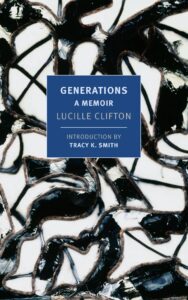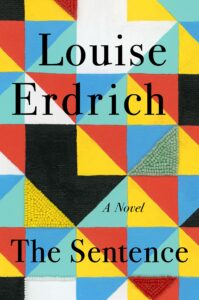NOVEMBER
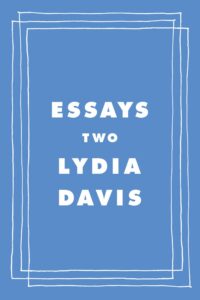
Lydia Davis, Essays Two
FSG, November 2
I think a good rule for living is always read Lydia Davis, so Essays Two is on my list for that reason alone. In this collection, Davis writes about translating Proust, Flaubert, and Michel Leiris, learning languages, and the city of Arles. Davis on writing is generous and specific in a way that reveals how much smarter she is than almost everyone without being the least bit alienating. I can’t wait to read her on translation. –JG
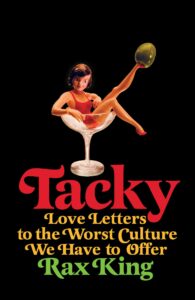
Rax King, Tacky: Love Letters to the Worst Culture We Have to Offer
Vintage, November 2
Just what it says on the tin: an essay collection that celebrates everything terrible that you secretly kind of love. That means Guy Fieri, the Cheesecake Factory, Creed (really, Creed???), and the one and only Hot Topic, and lots of other crap. Of course, King uses all this early 2000s effluvia to write about human connections and relationships, weighing all the nostalgic fun down with real substance and very good writing. –ET
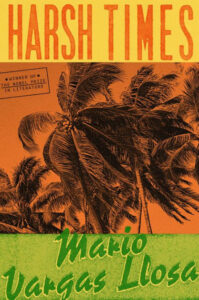
Mario Vargas Llosa, tr. Adrian Nathan West, Harsh Times
FSG, November 2
Maria Vargas Llosa is a master of an impossibly wide breadth of genres (and has the Nobel to prove it), but as The Feast of the Goat, his 2000 novel about the downfall of the Trujillo regime, revealed, he especially thrives in the political. Harsh Times is set amid the political turmoil of 1950s Guatemala, when a CIA-backed coup topples the government of Jacobo Árbenz. I can’t wait to tear through it and spend the next few months seething at the Eisenhower administration. –JG
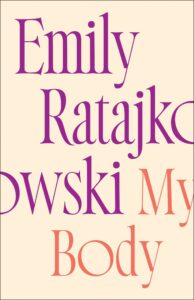
Emily Ratajkowski, My Body
Metropolitan, November 2
I don’t usually go in for celebrity memoirs, much less celebrity essay collections, but turns out that model and feminist Emily Ratajkowski is a really good writer. Lucky for us, then, that she spent her quarantine putting together this collection of essays, which her publisher calls “a profoundly personal exploration of feminism, sexuality, and power, of men’s treatment of women and women’s rationalizations for accepting that treatment.” Looking forward to reading more from her. –ET
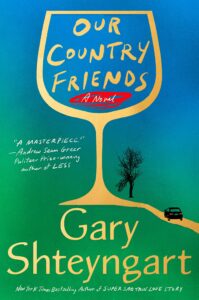
Gary Shteyngart, Our Country Friends
Random House, November 2
One of the first true “pandemic novels,” from one of this century’s great humorists: Our Country Friends follows the shifting relationships of a group of friends (including a Russian novelist; an app developer; a K-pop-obsessed child; a Southern essayist) at a country house in upstate New York in March 2020 as they wait out the COVID-19 pandemic. I’m curious how Shteyngart tackles COVID-19, and uncomplicatedly excited for what promises to be a social satire with a hilariously bizarre ensemble cast. –WC
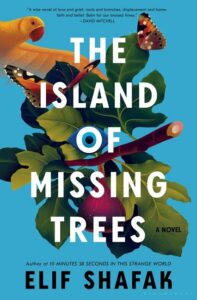
Elif Shafak, The Island of Missing Trees
Bloomsbury, November 2
From the prolific, Booker-shortlisted author of 10 Minutes 38 Seconds in This Strange World and The Forty Rules of Love comes a novel about forbidden love on the island of Cyprus, violence both literal and emotional, and the long tug of family history. –ET
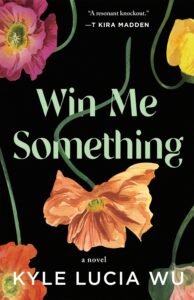
Kyle Lucia Wu, Win Me Something
Tin House, November 2
This quiet but piercing debut novel of identity and isolation from Asian American Writers’ Workshop Fellow Kyle Lucia Wu is the story of Willa Chen, a young biracial Chinese American woman from New Jersey who takes a job as a live-in nanny for a wealthy Tribeca family in the hope discovering the belonging and familial acceptance she’s always craved. Wu’s beautifully observed coming-of-age tale is a poignant and lyrical meditation on navigating the world with a fragmented sense of self. –DS
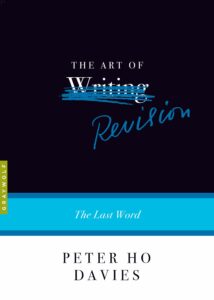
Peter Ho Davies, The Art of Revision: The Last Word
Graywolf, November 2
Like any earnest writing nerd, I love Graywolf’s Art of series, so I’m eager to pick up a copy of the latest, in which Peter Ho Davies tackles the mysterious art of revision. There will be drafts—from Carmen Maria Machado, plus Davies himself—dips into adaptations and retellings, and (I imagine) astute counsel that might make me feel less animosity toward the revision process. –ES
Michael Eric Dyson, Entertaining Race: Performing Blackness in America
St. Martin’s, November 2
As an academic, ordained minister, and author, Michael Eric Dyson has long offered his invaluable analysis of race and politics to the public consciousness through his writing and public speaking. Entertaining Race: Performing Blackness in America gathers some of his observations on these topics and more in an important work of criticism on identity, what it means to perform Blackness, and the history of American culture. –CS
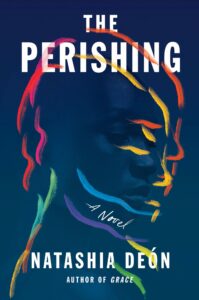
Natashia Deón, The Perishing
Counterpoint, November 2
Set against the backdrop of Depression-era Los Angeles, this novel evokes the storytelling prowess of Octavia Butler. A young Black woman named Lou wakes up in an alley with no memory of where she came from or how she got there. Lou tries to make the best of her unsettling circumstances and pursues an education. When she meets a firefighter at a downtown boxing gym, she’s shocked to realize that she’s known his face since the days of living with her foster family. Could Lou be immortal? And if so, why? –VW
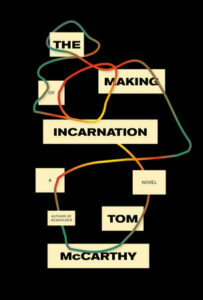
Tom McCarthy, The Making of Incarnation
Knopf, November 2
Unlike certain other (incorrect) members of the Literary Hub staff, I live for Tom McCarthy, in all his weird, cold, intellectual glory. The latest novel from the author of Remainder and C is “a high-tech odyssey through CGI studios, wind tunnels, and drone research centers, where the limits of healing, entertaining, revelation, and destruction are continually being transformed.” Which sounds exactly like what I want to read from him. Give it to me now. –ET
Lucille Clifton, Generations: A Memoir
NYRB, November 9
This year, NYRB is reissuing Generations, the prose memoir of Great American Poet Lucille Clifton. First published in 1976, and out of print since, the book traces the history of Clifton’s family, centering on its matriarch, Caroline, or Mammy Ca’line, who was “born free among the Dahomey people [in West Africa] in 1822 and died free in Bedford Virginia in 1910.” “These are the lives that America’s dominant history, as defined by aspirational notions of white personhood, has let fall into shadow,” writes Tracy K. Smith in the book’s new introduction. “These are the stories that have been left unmasked and untended by America’s preferred view of itself, like the graves of slaves on land passed down through the white generations.” But she has done more than just illuminate these lives. “Clifton’s purpose,” Smith writes, “is to teach us to see that we are, in fact, moving together and that we are, in fact, part of a large whole.” –ET
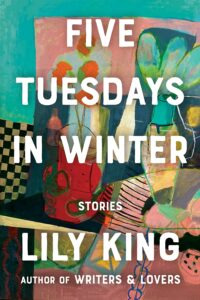
Lily King, Five Tuesdays in Winter
Grove, November 9
Last year, I pressed Writers and Lovers on pretty much everyone who said the word “book” to me, so I can’t wait to get my hands on Lily King’s first short story collection. King’s characters are gloriously human (neither self-conscious anti-hero nor everywoman relatability), and her prose is so deft that you almost don’t notice its beauty at first—it gets out of its own way. I look forward to inhaling this one. –JG
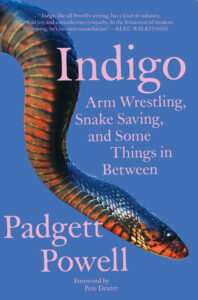
Padgett Powell, Indigo: Arm Wrestling, Snake Saving, and Some Things In Between
Catapult, November 9
Padgett Powell is a cantankerous delight who is unafraid to write exactly what he sees, and if he can’t quite see it, he’ll do whatever it takes to get a view. This collection of his nonfiction observations spans three decades of that looking and comes as advertised: Powell travels to Sweden for the world arm wrestling championships, searches for the endangered indigo snake in the wild, reflects on the importance of squirrel meat in a good gumbo, and delivers his honest opinions about writers like Denis Johnson, Flannery O’Connor, and William Trevor. –JD
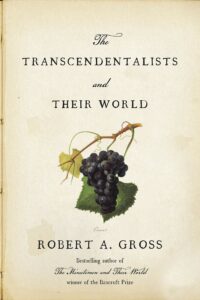
Robert A. Gross, The Transcendentalists and Their World
FSG, November 9
Robert A. Gross’ work brings extensive insight into the intellectual world and legacy of Concord, Massachusetts; his previous book The Minutemen and Their World focused on the city during the American Revolution, and now, The Transcendentalists and Their World examines how the area gave rise to one of the most impactful philosophical and literary movements in American history. Beyond the stories of some of transcendentalism’s most well-known thinkers, Gross looks at the ways in which the community’s relationship with politics, capitalism, and freedom of thought impacted the development of transcendentalism, giving a larger-picture historical view and valuable context for the movement. –CS

Jim Harrison, The Search for the Genuine: Selected Nonfiction
Grove, November 9
Jim Harrison was a gift: as a poet, as a novelist, as a food writer, as a presence. However you care to describe his compelling contradictions—gruff tenderness, gentle rancor—his writing was transporting, journeying far and wide through the wild lands of his own endlessly restless heart. Thankfully, we have many of those nonfiction works collected here for the first time, a compendium of reporting and criticism that covers the gamut of Harrison’s many passions, from grouse hunting to the beauty of Big Sky country to the poetry of Pablo Neruda. –JD

Mina Seckin, The Four Humors
Catapult, November 9
In Seçkin’s debut novel, Sibel returns to Istanbul to take care of her grandmother, study for the MCATs, and show off her blond American boyfriend. But instead she finds herself watching Turkish soap operas and relying on ancient medicine to treat her chronic illness. Artful, funny, unpacking both Turkey’s political unrest and Sibel’s family history, Seçkin (a former Lit Hub editorial fellow!) tells a beautiful story of family and secrets, and really, isn’t that the heart of all great fiction? –EF
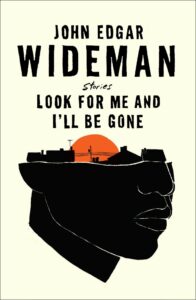
John Edgar Wideman, Look for Me and I’ll Be Gone: Stories
Scribner, November 9
Forty years on from the publication of his first book of short stories, two-time PEN/Faulkner Award for Fiction winner Wideman’s sixth collection “revisits themes that have infused his work for the duration of his career: family, loss, the penal system, Pittsburgh, physical and emotional life, art, and memory.” Wideman is known for producing harrowing experimental fiction that focuses on the Black experience in America and subverts out expectations of what stories can do, so expect to be shaken by these new tales, which span topics ranging from Michael Jordan to youth incarceration to the Atlanta child murders. –DS
Louise Erdrich, The Sentence
Harper, November 9
One of many of this fall’s heavy-hitting novelists with a book out, Erdrich follows up her 2020 Pulitzer Prize-winning The Night Watchman with this story of an Ojibwe bookseller grappling with the haunting of the very store she works in. As Tookie attempts to understand why the ghost of a former customer just won’t leave, she begins to come to terms with the life she could have had, and the life that still might be hers. –JD
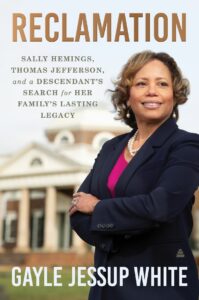
Gayle Jessup White, Reclamation: Sally Hemings, Thomas Jefferson, and a Descendant’s Search for Her Family’s Lasting Legacy
Amistad, November 16
When we study American history and the genesis of our democracy, too many people still seem to downplay the Founding Fathers’ involvement in the country’s brutal legacy of systemic racism, anti-Blackness, and segregation. Some scholars and history buffs treat Sally Hemings as a willing paramour of Jefferson, as though her enslavement were an inconsequential footnote. Gayle Jessup White, a Black descendant of Thomas Jefferson and Sally Hemings’ family, painstakingly unearths buried truths to reclaim her heritage. –VW
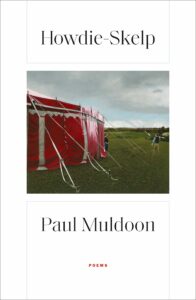
Paul Muldoon, Howdie-Skelp
FSG, November 16
Unlike novelists (sorry) it’s not hard to find poets writing their strongest work in their seventies—and so it is for Paul Muldoon, who enters his eighth decade in full voice. His latest collection ranges far in its choice of subject, from the experiences of our collective plague year to the loss of dear friends to the nature of art and seeing. One can only hope that Howdie-Skelp is the first of many to come from Muldoon over the next ten years. –JD
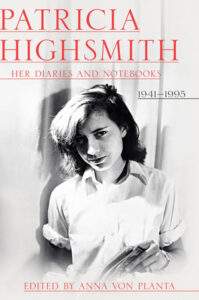
Anna von Planta, ed., Patricia Highsmith: Her Diaries and Notebooks: 1941-199
Liveright, November 16
Patricia Highsmith was a brilliant writer, and also she hated everyone. That is enough to make me want to read her diaries, which were discovered in the Swiss Literary Archives by her editor, who has explained that she never had any intention of blunting Highsmith’s venom, even when it was racist, misogynist, and antisemitic. “The idea was to show how Patricia Highsmith became Patricia Highsmith,” Von Planta told the New York Times. “And to have her tell about her life, her thoughts, her concerns, the making of her work, in her own words.” She was no hero—but she was a fascinating character, and this is the fullest picture of her we are likely to get. –ET
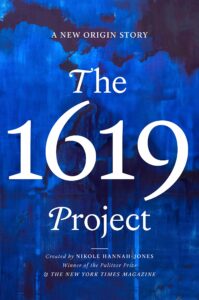
Nikole Hannah-Jones, ed., The 1619 Project: A New Origin Story
One World, November 16
Building off The New York Times Magazine’s 1619 Project issue, this collection edited by Nikole Hannah-Jones gathers over 50 essays, poems, and stories that not only refuse to let America gloss over its history of slavery but elucidates how that legacy still shapes every facet of our lives. Contributors include Kiese Laymon, Danez Smith, Jesmyn Ward, Terrance Hayes, Barry Jenkins, Claudia Rankine, and so many more. –ES
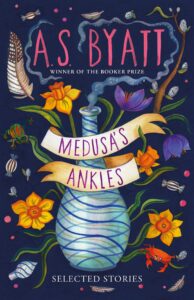
A.S. Byatt, Medusa’s Ankles
Knopf, November 23
This collection of stories selects the best short work from A.S. Byatt’s long career, introduced by David Mitchell. I only know Byatt through her wonderful novels, so I’m looking forward to reading her in short form. –ET
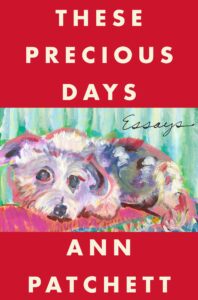
Ann Patchett, These Precious Days: Essays
Harper, November 23
Ann Patchett is a national treasure: novelist, bookstore owner, plumber of humanity’s collective heart. These collected essays, straddling life and art, are deeply personal and beautifully written. Included is the title essay, which appeared earlier this year in Harper’s, about her random, beautiful friendship with Tom Hank’s assistant; also the story about her father and her stepfathers that The New Yorker keeps spamming me with every few weeks on social media (I reread it every time!) From essays on Eudora Welty to knitting, this is a must-read collection. –EF
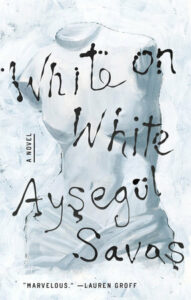
Aysegül Savas, White on White
Riverhead, November 30
I loved Savaş’s 2020 novel Walking on the Ceiling, and am astounded that we’re getting a second one from her so soon. White on White concerns a student, researching Gothic nudes, who rents an apartment from a painter who seems to be coming apart at the seams. If it’s anything like her insightful, incisive debut, it will be a true work of art. –ET
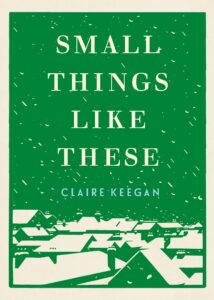
Claire Keegan, Small Things Like These
Grove Press, November 30
I was living in Dublin when Claire Keegan’s second collection, Walk the Blue Fields, was published to much acclaim. These were absolutely perfect stories—melancholy fictions that took place mainly in rural Ireland and absolutely full of life. A few years later, I was somehow, miraculously, publishing an anthology that included her prize-winning story “Foster,” a novella-length work that I reread as often as possible. This novel, which has all the trappings of a Claire Keegan story (small-town Ireland, a dark secret, a man with a burden to bear) is sure to be absolutely beloved by all who read it. –EF



